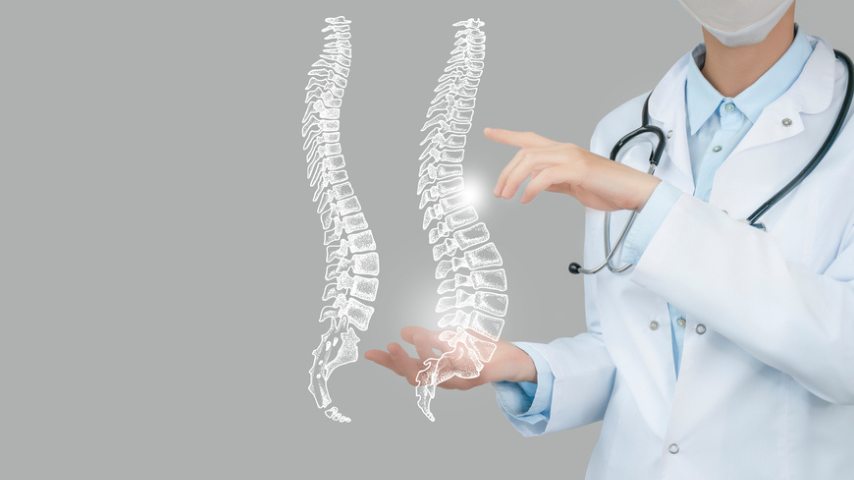Demystifying Herniated Disc Surgery: A Roadmap to Recovery

Herniated discs can be a source of excruciating pain and discomfort, disrupting daily life and hindering mobility. When conservative treatments fail to provide relief, herniated disc surgery may offer a solution to alleviate symptoms and restore function. In this comprehensive guide, we'll unravel the intricacies of herniated disc surgery, shedding light on the procedures involved and the journey to recovery. Accompanied by insights from Dr Santosh Kumar, a distinguished Consultant Neurosurgeon, let's embark on a journey to understand herniated disc surgery and navigate the path to recovery.
Dr Santosh Kumar S A, an esteemed Neurosurgeon, underscores the importance of informed decision-making in herniated disc surgery, stating, "Herniated disc surgery can provide significant relief for patients suffering from debilitating symptoms. By understanding the surgical options and actively participating in the treatment process, patients can embark on a path to recovery with confidence."
Understanding Herniated Discs:
A herniated disc, also known as a slipped or ruptured disc, occurs when the soft inner core of a spinal disc protrudes through the tough outer layer, pressing on nearby nerves and causing pain, numbness, or weakness. Herniated discs commonly occur in the lower back (lumbar spine) or neck (cervical spine) and can result from aging, wear and tear, injury, or degenerative changes in the spine.
Indications for Herniated Disc Surgery:
Herniated disc surgery is typically considered when conservative treatments such as rest, medication, physical therapy, or injections fail to provide adequate relief, and symptoms persist or worsen over time. Common indications for surgery include:
- Persistent or severe pain that interferes with daily activities and quality of life
- Progressive neurological deficits such as weakness, numbness, or difficulty walking
- Loss of bowel or bladder control (a sign of cauda equina syndrome), indicating compression of the spinal cord
Surgical Options for Herniated Discs:
- Microdiscectomy: Microdiscectomy is a minimally invasive surgical procedure aimed at removing the portion of a herniated disc that is compressing spinal nerves. It involves making a small incision and using specialized instruments and a microscope to access the affected disc and remove the herniated portion. Microdiscectomy is highly effective in relieving leg pain (sciatica) and improving mobility.
- Laminectomy: In cases where the herniated disc is causing spinal canal stenosis or spinal cord compression, laminectomy may be performed to remove a portion of the lamina (bony arch) and create more space for the nerves. Laminectomy can alleviate symptoms of spinal cord compression, such as weakness, numbness, or difficulty walking.
- Spinal Fusion: Spinal fusion surgery may be recommended for patients with recurrent or severe disc herniation, spinal instability, or degenerative disc disease. Spinal fusion involves fusing two or more vertebrae together using bone grafts and implants to stabilize the spine and prevent abnormal movement.
- Artificial Disc Replacement: For select patients with single-level disc herniation and preserved disc height, artificial disc replacement may be considered as an alternative to traditional fusion surgery. Artificial disc replacement aims to preserve spinal motion and flexibility while alleviating symptoms of disc herniation.
Recovery and Rehabilitation:
Post-operative recovery following herniated disc surgery typically involves a period of rest, followed by gradual mobilization and physical therapy. Patients may experience some discomfort or stiffness initially, but pain relief and improvements in mobility are typically evident within a few weeks. It's essential to follow the post-operative instructions provided by the surgical team, attend scheduled follow-up appointments, and engage in rehabilitation exercises to promote healing and optimize outcomes.
Conclusion:
Herniated disc surgery can be a transformative treatment option for individuals struggling with debilitating symptoms and impaired function. By understanding the surgical options, indications, and recovery process, patients can make informed decisions and embark on a journey to relief and recovery. With the expertise of skilled neurosurgeons like Dr Santosh Kumar S A and advancements in surgical techniques, herniated disc surgery offers hope for improved quality of life and restored mobility. Through collaboration, education, and proactive engagement in the treatment process, patients can navigate the path to recovery with confidence and optimism.
Specialities
Clear allMeet the doctor

Dr Santosh Kumar S A
Neuro and Spine Surgery
MBBS, MS (Gen Surgery), MCh (Neurosurgery), DNB (Neurosurgery)











